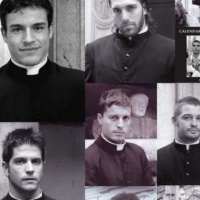An eight-year-old was asked to write a homework essay with the title ‘Explain God’ This is what he wrote:
One of God’s main jobs is making people. He makes them to replace the ones that die so there be enough people to take care of things on earth.
He doesn’t make grown-ups, just babies. I think because they are smaller and easier to make. That way, he doesn’t have to take up his valuable time teaching them to talk and walk. He can just leave that to mothers and fathers.
God’s second most important job is listening to prayers. An awful lot of this goes on, since some people, like preachers and things, pray at times besides bedtime.
God doesn’t have time to listen to the radio or TV because of this. Because he hears everything, there must be a terrible lot of noise in his ears, unless he has thought of a way to turn it off.
God sees everything and hears everything and is everywhere, which keeps him pretty busy. So you shouldn’t go wasting his time by going over your mum and dad’s head asking for something they said you couldn’t have.
Jesus is God’s son. He used to do all the hard work like walking on water and performing miracles and trying to teach the people who didn’t want to learn about God. They finally got tired of him preaching to them and they crucified him.
But he was good and kind like his father and he told his father that they didn’t know what they were doing and to forgive them and God said OK.
His dad (God) appreciated everything that he had done and all his hard work on earth, so he told him he didn’t have to go out on the road anymore. He could stay in heaven. So he did. And now he helps his dad out by listening to prayers and seeing things which
are important for God to take care of – and which ones he can take care of himself, without having to bother God. Like a secretary – only more important.
That’s an eight year old’s perception of who God and Jesus are and what they are like.
It’s a misconstrued perception, but, sadly, such warped descriptions aren’t restricted to children.
Many adults too have a false impression of who Jesus is.
Jesus once asked his disciples who people think he is. He was testing public opinion.
The answers ranged from John the Baptist to Elijah and Jeremiah or some other prophet.
But Peter, when asked, was able to give the answer to the puzzle of Jesus’ identity – and his answer should be ours also – ‘You are the Messiah, the Son of the living God’
Jesus is Emanuel, God with us, the head of dominion in whom is full salvation and access to God.
He comes from God, is one with God, reveals his purpose, and leads humanity back to him. He is what God intends humankind to become.
Jesus is about love and reconciliation. He’s about broken lives and putting them back together again.
Jesus is about everything that is good and pure.
He looks at us as he did the disciples that day and says, “Who do YOU say I am?”
Jesus is not someone, who is easily defined, but when, with Peter, we acknowledge him to be the Messiah or Christ, we confess him as we have experienced him.
As we have experienced his compassion and his love.
For Jesus is love.
The real Jesus is someone who cares for us, who has compassion on us, who loves with a love divine all loves excelling; a love that made him sacrifice himself for the likes of us – yes, us, loveless and imperfect as we all are.
When we have experienced that wondrous love, then we truly know who he is – “the Messiah or Christ, the Son of the Living God”
Who is the real Jesus? Someone who loves us far more than we will ever understand.
As the old Hymn puts it –
Jesus loves me this I know
For the Bible tells me so
Little ones to him belong
They are weak, but he is strong
Yes, Jesus loves me
Yes, Jesus loves me
Yes, Jesus loves me
The Bible tells me so








